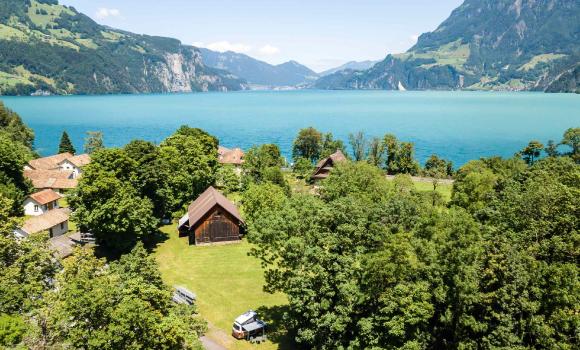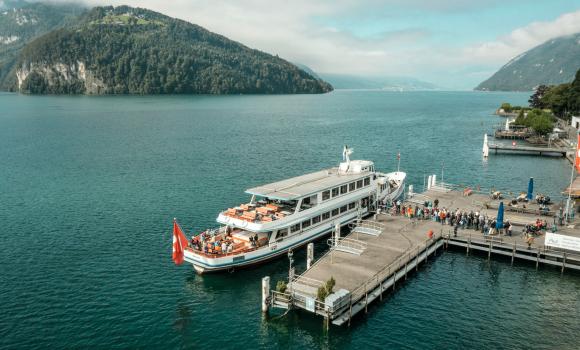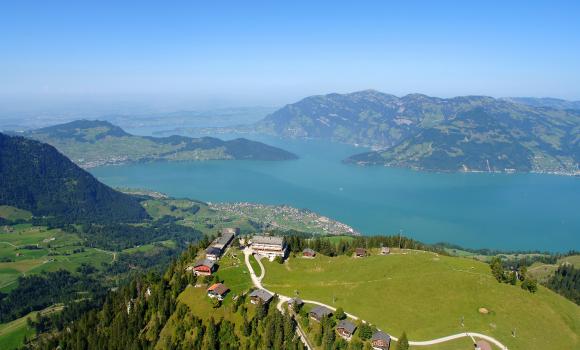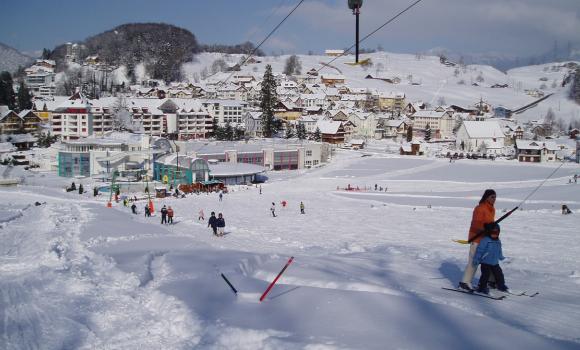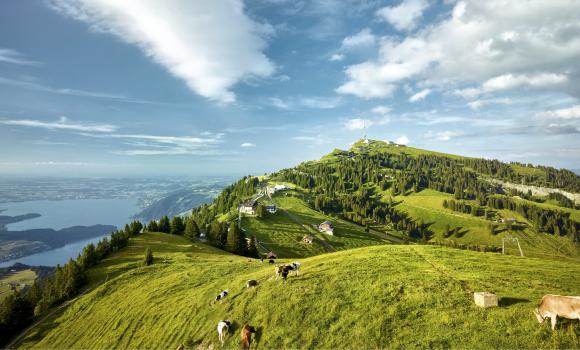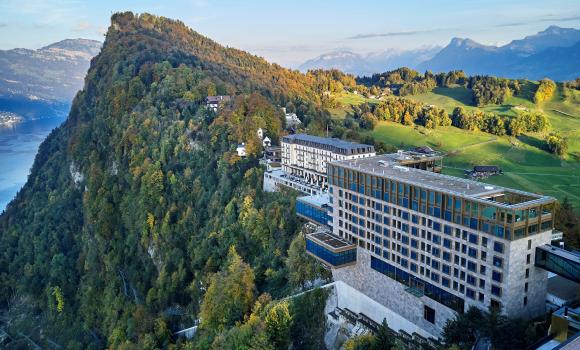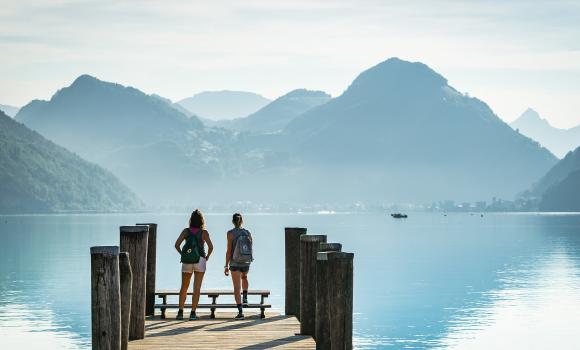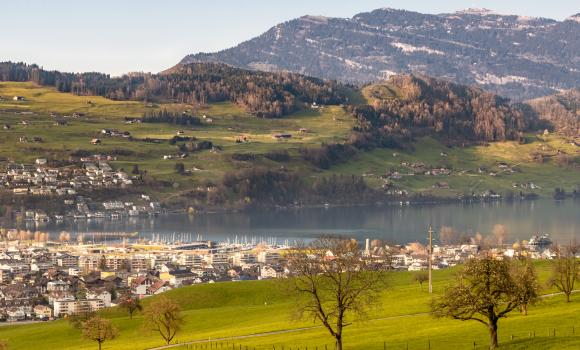
Bauen
This small fishing and farming village is located in the Uri basin, right on the banks of Lake Lucerne. The village, which lies at the foot of an impressive mountain backdrop, is the smallest municipality in the canton of Uri.
In former times, the rural village of Bauen could only be reached by crossing the lake or by means of a narrow walkway. The little village received a regular boat service in 1875, but it was not until 1956 that an access road was built between Isleten and Bauen. Thanks to this easier access, Bauen soon became a popular destination for outings and holidays.
The small, historic village centre is comprised of residential houses and inns, most of which are built in the traditional Central Swiss farmhouse style with their gables facing the sea. These buildings surround a small square, which contains a monument dedicated to Alberik Zwyssig, who was born in Bauen and composed the Swiss national anthem, “Trittst im Morgenrot daher”. The house in which he was born stands above the monument and is now the “Zwyssighaus” gourmet restaurant.
The spaces between the residential houses and inns are particularly diverse and unspoilt. They are characterised by lush gardens with Mediterranean vegetation, narrow laneways, terraced walls and small squares. Again and again, the gardens offer impressive views of the mountain and lake scenery.
Below the village centre, directly on the bank of the lake, stands the striking church of St Idda. This classicist place of worship and landmark dominates the main view of Bauen from the lake.
The small, historic village centre is comprised of residential houses and inns, most of which are built in the traditional Central Swiss farmhouse style with their gables facing the sea. These buildings surround a small square, which contains a monument dedicated to Alberik Zwyssig, who was born in Bauen and composed the Swiss national anthem, “Trittst im Morgenrot daher”. The house in which he was born stands above the monument and is now the “Zwyssighaus” gourmet restaurant.
The spaces between the residential houses and inns are particularly diverse and unspoilt. They are characterised by lush gardens with Mediterranean vegetation, narrow laneways, terraced walls and small squares. Again and again, the gardens offer impressive views of the mountain and lake scenery.
Below the village centre, directly on the bank of the lake, stands the striking church of St Idda. This classicist place of worship and landmark dominates the main view of Bauen from the lake.
ISOS
ISOS is the Federal Inventory of Swiss Heritage Sites of national importance. The inventory is maintained by the Federal Office of Culture (FOC) and lists the most significant settlements in Switzerland. Today, some 1,200 places are included in the inventory, from hamlets right through to cities. The inventory provides information on the development and identity of the settlements listed in it, thereby contributing to the preservation of architectural diversity in Switzerland and promoting both sustainable planning and a high-quality Baukultur.
ISOS is the Federal Inventory of Swiss Heritage Sites of national importance. The inventory is maintained by the Federal Office of Culture (FOC) and lists the most significant settlements in Switzerland. Today, some 1,200 places are included in the inventory, from hamlets right through to cities. The inventory provides information on the development and identity of the settlements listed in it, thereby contributing to the preservation of architectural diversity in Switzerland and promoting both sustainable planning and a high-quality Baukultur.
Live impressions from Bauen
Activities
Bauen
Today
In the second half of the day high clouds. Temperatures between 2 and 7 degrees.
Destinations nearby
Frequently asked questions (FAQ)
What activities are popular in Bauen?
Some popular activities are: TempCamp - Stellplatz Isleten.
What types of activities are available in Bauen?
In Bauen, you can engage in the following types of activities: Camping.
What places are located near Bauen?
Which public transport options are available to reach Bauen?
Bauen is accessible by boat and by car.






